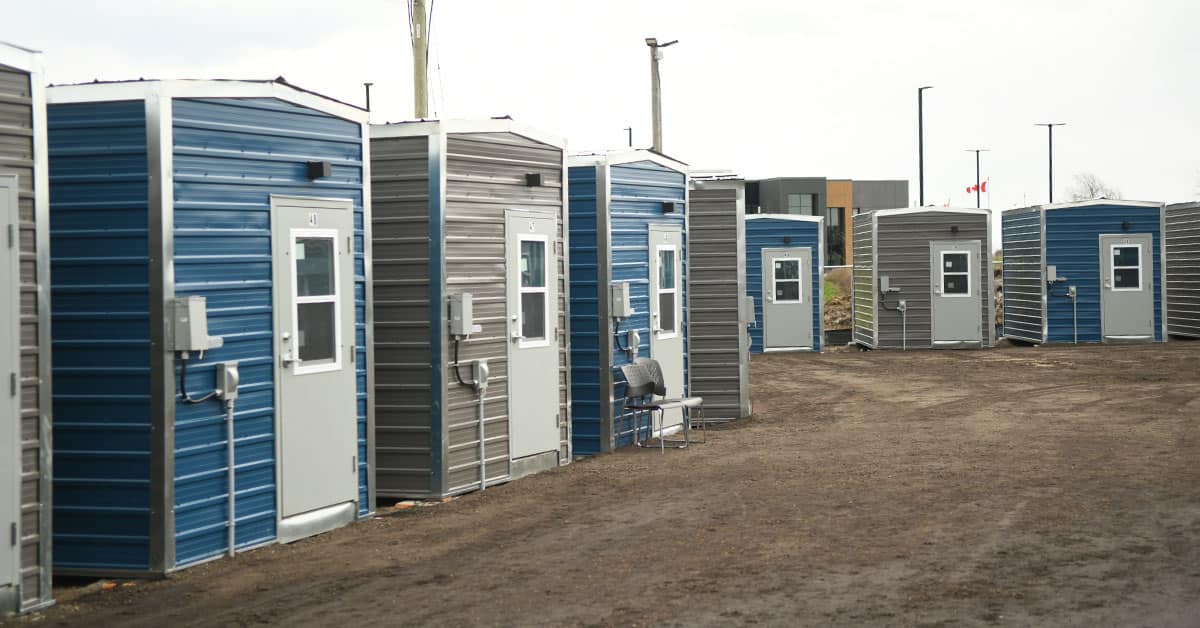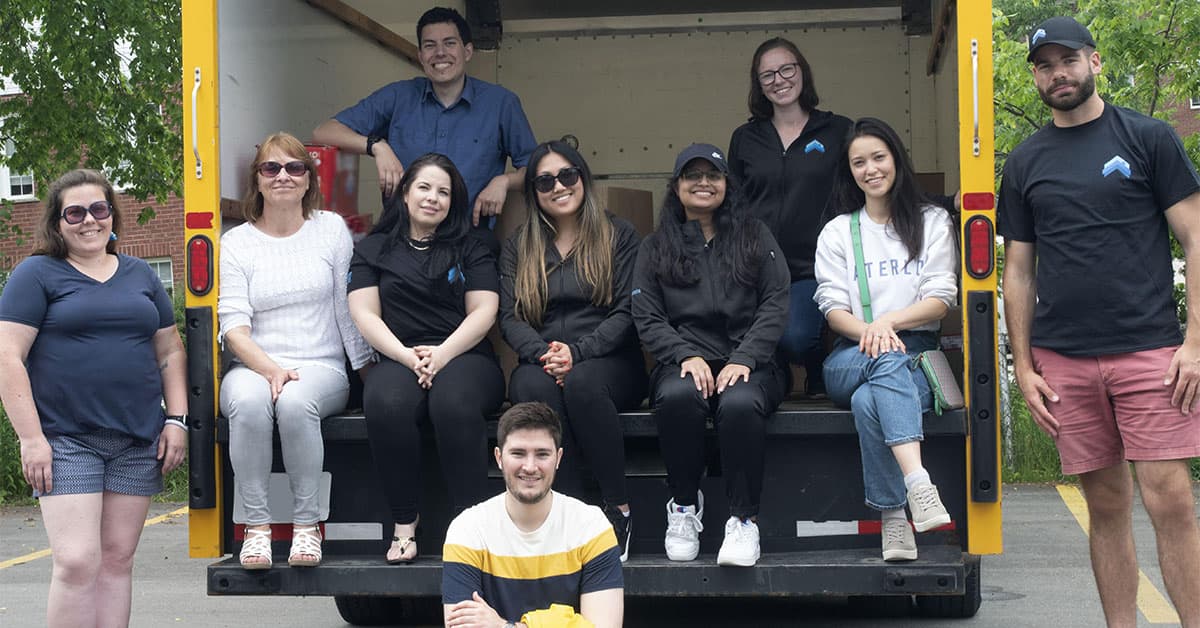“This was mud up until yesterday,” Chris McEvoy said cheerfully Tuesday about the recycled asphalt covering the site of Waterloo Region’s temporary outdoor shelter at 1001 Erb’s Road near the border of the city of Waterloo and Wilmot Township.
Workers are busy finishing up the communal space at the site, as residents are expected to be moving into the circle of temporary outdoor shelter cabins as early as this week.
“This is not housing, it’s not permanent housing. We want to support people into affordable and permanent supportive housing. The Working Center and other partners will be supporting folks as quickly as they can to move into those housing units,” said McEvoy, the manager of housing policy and homelessness prevention with the region.
Each cabin of about 107 square feet has a bed, desk, chair, and mini-fridge and comes equipped with heating and cooling.
A larger communal space on site has running water, a common area, a kitchen, washrooms, laundry services, heating and electricity.
The site is managed by the Working Centre and will have expectations and guidelines for staying. The site will be staffed 24 hours a day, seven days a week, with support services and security.
The services include mental health and addictions supports with the goal to help connect the residents to permanent housing. Food will be supplied from the Working Centre.
A shuttle will run between the site and the downtown core several times a day.
Region staff estimate there are about 1,000 people experiencing homelessness in the region right now, including about 450 people who are chronically homeless, meaning they are experiencing homelessness for long periods of time.
The first people invited to come live in the outdoor space are people in the highest visibility areas, priority areas, people living in camps, McEvoy said. Residents were invited individually through the Working Centre staff who have developed relationships with people in the homeless population.
“We’re starting with those in the high risk or high visibility encampments, those the most disconnected from services, so starting with the folks at the encampment at 150 Main Street in Cambridge, Roos Island in Victoria Park in downtown Kitchener, at 100 Victoria in Kitchener. Starting with individuals there, I believe we’re up to 40 individuals who have signed with expressed interest and signed participation agreements,” McEvoy said.
So far, about 40 people are signed up and ready to move in to the site. That includes 11 couples and eight dogs. McEvoy says children are not allowed to live at the site.
McEvoy says the region is exploring ways that residents will contribute to being there, potentially through the shelter portion of Ontario Works or ODSP payments.
While at the outdoor shelter site, residents will also be connected to the Working Centre’s Job Café program, which provides help for people outside the traditional job pool to find work.
“People living here will be invited into that program and they will be participating in the cleaning and upkeep of this space, and getting paid for it,” said Jay Straus, the transitional housing lead with the Working Centre.
There is no maximum length of stay, though the program has a rough timeline of two years when it will be re-evaluated. McEvoy said once this site is set up and running, the region will evaluate to see if similar sites in Kitchener and Cambridge would be advisable.
The Working Centre staff and volunteers will be providing food to the residents. The centre staff will put out a call for any specific items needed at the site. If people want to donate food, Straus suggests donating food or funds to the Food Bank of Waterloo Region, which supplies the food they use to distribute to their programs.
McEvoy says this temporary outdoor shelter site is another tool to tackle the region’s housing problem. Other temporary housing solutions the region uses include transitional housing, home-based supports like scattered-site supportive housing, which are housing units with rental supplements and supports, and emergency shelters. Funding for the outdoor site will be from the municipal levy and other sources, says McEvoy.
McEvoy was clear to state that the region and the partners are working on longer-term solutions as well as short-term solutions at the same time.
The region staff are working on a ‘Plan to End Homelessness,’ with the first step being to gather representatives from all the organizations and people who need to be at the table, including people with lived experience of homelessness.
“As we work on this community-led and determined plan for what it’s going to take for our communities to end chronic homelessness in terms of collaboration and resources, what is it going to take? As we pull together that community-led plan, we know we also can’t wait for that plan to take shape, we need to do something in the here and now. And so that’s where Erb’s Road fits into the interim solutions, as well as the longer-term plan to end chronic homelessness in Waterloo Region,” said McEvoy.









